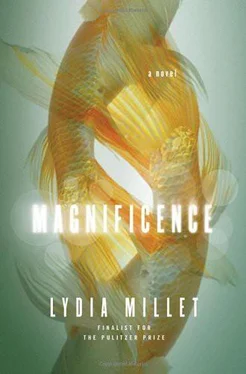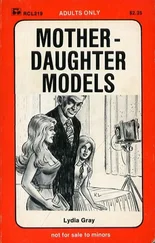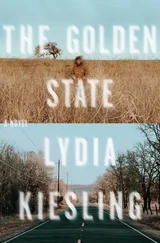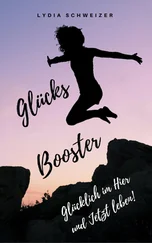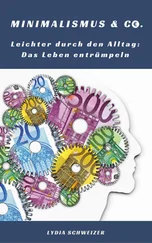She left them together to join a smokers’ circle outside, near an angel statue. It seemed to be office people. A woman with frizzy hair and outsize earrings spoke to her.
“He was a special person,” she said.
Susan took the cigarette that was offered and let someone light it for her, surprised at how bad it tasted. The first one always did.
“If there’s anything we can do,” said a man.
“This is a good beginning,” she told him, raising the cigarette, and took a drag.
“Hal talked about you all the time,” said another woman. Bookish-looking and gangly.
“He did?” asked Susan.
“He was devoted to you. And Casey.”
“Casey, definitely,” agreed Susan. She had put her plastic wine cup down near the angel’s stone toes; now she reached for it and sipped. “He lived for Casey.”
“He had a way with people,” said the earrings.
“Really? I used to kid him about not having one.”
There was a shocked silence at this.
“One time,” went on the big earrings, as though to politely cover the transgression, “there was a crazy, you know, a hostage taker? Did he tell you that story?”
Beyond the woman the hedges were carefully trimmed into long boxes. If they grew wild, she thought, they would be far more lovely. Did people want to be buried beneath topiary?
“. . turned out it wasn’t a real gun. It was a water pistol! But there was real, I mean, fear, you know? People were freaking out. And Hal, you know, he totally defused the whole situation.”
“Mmm, yeah,” said Susan. “The squirt-gun thing.”
She did remember, or almost. The anecdote had a punch line, if she recalled correctly: the squirt gun had been green. Hal liked to tell stories, when he was in the right mood — mostly about his coworkers, their foibles and idiosyncrasies.
“The guy was a legend,” said a young Hispanic man earnestly. He had a pathetic pencil mustache, a concave chest, and his pants were too long. Or no: they were belted just below the rib cage. “Name’s Arlo, by the way.”
“Oh,” said Susan.
Rodriguez, Hal had called him. The pants were the tip-off.
She shook his hand.
“Pleased to meet you. Again.”
Surely she had met him.
“Yeah, Christmas party, right?”
“Right,” she agreed. One of the few she’d attended.
“I’m serious. He was a legend. Old-school. Last of the Titans, man.”
“Hal Lindley, last of the Titans,” she repeated wistfully.
“Man, you know what? I gotta tell someone this,” said Rodriguez, and bent forward as though pained. “I totally offered to go with him. I woulda had his back. I told him that. He told me he was going down there. I go, Take me with. Seriously! I hadda gone, you know, maybe this wouldna. .”
He trailed off. He looked lost.
“You can’t think like that,” said Susan gently. “He didn’t want company. It was his choice, Arlo.”
“Yeah, but.”
“It was his adventure,” she said. As she said it she felt its accuracy: Arlo was comforting her, not the other way round. It was not that she denied her part in it — it was still murder she had done, at least manslaughter. But she remembered Hal’s voice on the phone. A tensile strength, an alertness she had missed for a long time before that. How he had looked in the casket: curiously alive.
Her adventure had been without him, his without her. A last freedom.
The bookish woman was crying; the one with large earrings sidled close and put a fleshy arm around her, pulled her in. Susan rested her eyes on the woman’s blouse, a pattern of wine-red and dark-blue leaves. Flesh was always a consolation — flesh, not beauty. Beauty was social, flesh was private. These days Susan consoled no one. When Casey was a baby and Susan still had weight from the pregnancy, baby Casey had nestled against her. She had kneaded the flesh and buried her face in it. Later when Casey was a toddler and the weight was gone, Casey had not liked the change or trusted it. She even complained. Susan remembered now: the toddler Casey had said her mother’s stomach was no longer beautiful. She bemoaned its absence. To her consolation was beauty; small Casey had not thought of forms or majesty. She wanted body all around.
Susan felt a rush of affection for the earrings woman, as if by putting her arm around the other she had put it around her too. A common mother, a small mothering for all. Susan thought of her own mother. Then how rarely she thought of her. As though her mother had been a mother in another life, a life long past, a faint image or pattern of a mother.
And yet — at least when she was a baby, a small child — her mother must have felt for her, as she herself did for Casey, a deep and wrenching love.
But they hadn’t been close; the love had been squandered. Somehow along the way Susan had squandered it.
A terrible remorse threatened.
She would go inside now to see Casey again.
“Let me get some more drinks,” she said, for an exit. “Drinks? Anyone?”
•
A first cousin was in attendance, the only one she still knew. He was a consultant, something to do with computers. He wore a metallic gray jacket and a violet tie and was balding. She hadn’t seen him for years; they’d never had much in common. They collided at the buffet table, near a vegetable platter.
“So how’ve you been,” she asked, after condolences. She picked up a piece of celery. It seemed like days since she’d eaten.
“Oh, you know,” he said. His hand made a gesture of dismissal.
“I don’t,” she said. “I don’t at all. Tell me.”
“Well, Deb left,” he said.
The wife, must be.
“Oh. I’m really sorry.”
He shrugged.
“Nah, it’s for the best.”
“And how are the kids?” She thought there were two of them. Both boys.
“College.”
“Uh-huh? They liking it?”
“Engineering. That’s Tommy. He’s gonna be an earner. Gil’s doing something useless. Art history.”
Now she remembered. The guy was a tool.
“Hardly useless.”
“Whatever. No money in it.”
“Better than phone sex,” said Casey.
There she was, drunk and flushed. Less pale than usual. She reached for a cherry tomato.
“You remember Casey. Casey, your second cousin. Steven.”
“I remember Gil. And Tommy. We played with a soccer ball in the street. He did that thing where you head-butt it.”
It struck her that Steven might not have seen Casey since the accident. He must have known; it could not be new information. But he looked mildly embarrassed.
“Casey, good to see you.”
No, he had seen her once in the chair, that was right, a birthday thing for his own kid.
“Thanks for coming,” said Casey.
She probably meant it, but there was something in the tone. She’d never liked him, Susan thought. She chewed her tomato and squinted up.
“Kids would have too. But they’re busy.”
“Studying art history.”
“Gil’s back East. Tommy’s at USC.”
“Mmm. Good for him,” said Casey.
“I’m really sorry about your dad,” said Steven.
Casey nodded. There was silence.
“Freak thing,” said Steven. “You get a lot of freak. .”
He trailed off, his gaze lingering on her chair.
“Huh,” said Casey, and popped another tomato into her mouth. “Better quit while you’re ahead.”
She spun and wheeled off.
“. . accidents in your family,” he finished, lamely.
“Uh, yeah,” said Susan.
“Hoo,” he said after a moment, with awkward jocularity, and shook his head. “Sensitive.”
“Well. Her father was just stabbed to death,” said Susan.
She left him groping a zucchini flower.

Читать дальше
